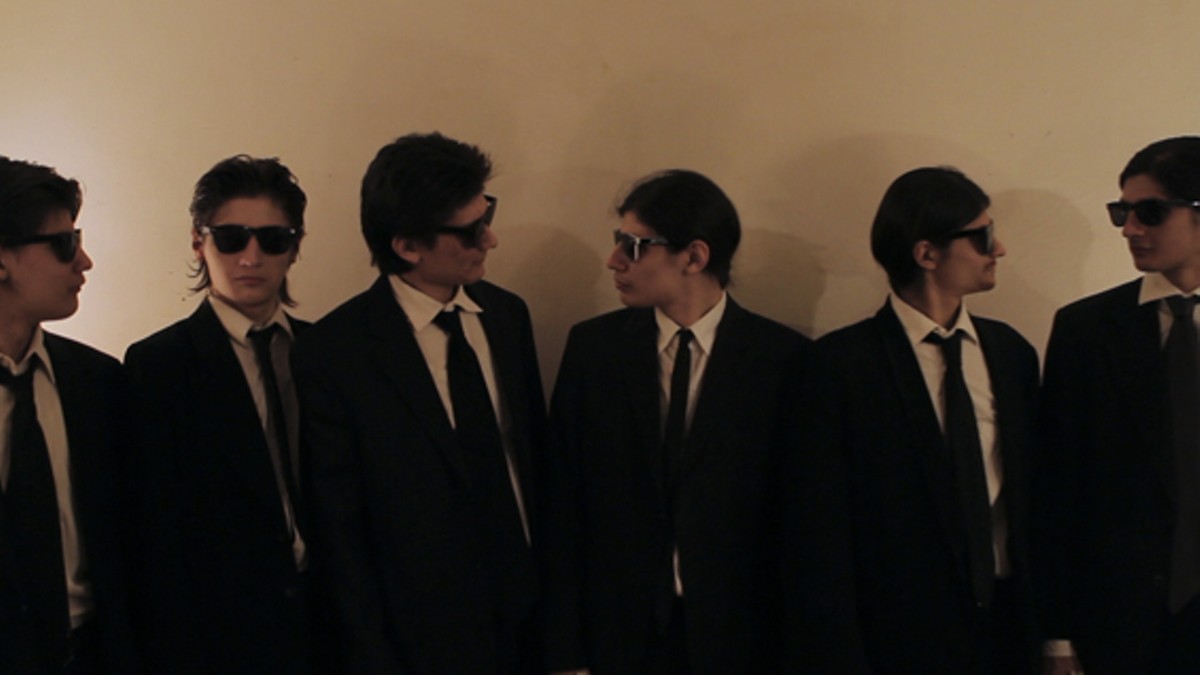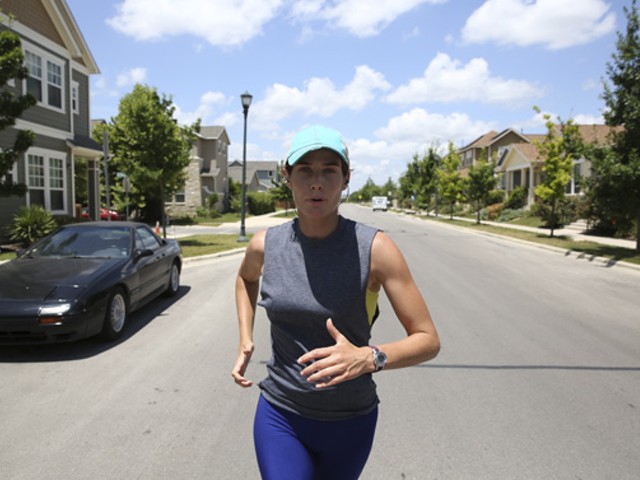It begins with a flurry of activity — six young men with waist-length hair, mostly teenagers, wearing dark suits and running back and forth in a narrow apartment hallway. They carry a variety of homemade prop guns elaborately constructed from cardboard, aluminum foil and duct tape. It will not take long for most viewers to recognize that these young men are enthusiastically restaging their own version of Tarantino's Reservoir Dogs. We've all heard of cult movies, but what we seem to be witnessing is a reversal, a movie-based cult.
The young men are the Wolfpack, six brothers who used their passion for movies to escape — both figuratively and literally — from a strange and abusive childhood. When filmmaker Crystal Moselle saw them on the streets of New York in the Reservoir Dogs garb, she became interested in their story; in making her film, she pushes that narrative toward an ending.
The Wolfpack is the story of the Angulo family, nine people living together in a single apartment in New York's Lower East Side. The father, Oscar, was a tour guide in Peru when he met and married Susanne, an American tourist. Oscar appears to be a quasi-cult leader who found a rather gullible partner. He convinced Susanne that they should have ten children (they had to stop at seven) and gave them all Sanskrit names (Bhagavan, Govinda, Jagadesh, Krisna, Mukunda and Narayana; their daughter is named Visnu). After a vague plan to move to Europe fell through, the Angulos ended up in New York, where the children were home-schooled. Out of paranoia or a need to control his family, Oscar ruled that the children couldn't cut their hair, leave the apartment or even move from one room to another without his permission. But in the absence of any social life, the children were encouraged to watch movies from their father's extensive collection.
For the Angulo boys, movies became their primary window to the outside world. They began by transcribing the dialogue of their favorites, then made their own reproductions of the cover art and eventually remade these films with a home video camera. Re-creating the experiences of the characters in Pulp Fiction and The Dark Knight became a way to experience life by surrogate; watching the brothers in "real life" in the film, one senses that in their mannerisms and vocal patterns they're still relying on cinematic role models, unconsciously imitating Jack Nicholson or Harvey Keitel as a kind of protective cool to keep the real world at bay. Watching The Wolfpack, I was reminded of another documentary about a dysfunctional family who turned their lack of socialization into a kind of performance art, Albert and David Maysles' classic Grey Gardens. But where Edie Beale and her mother seemed to feed on their isolation, the Angulos use their only outlet — their love of movies — to learn how to rebel.
Moselle doesn't really take much time explaining the Wolfpack's story. She's more concerned with acting as an observer and a confidante. She accompanies the brothers on one of their rare excursions into the outside world and, although the film doesn't make the point obvious, appears to have been a major factor in their eventual break from confinement. Documentary purists — do they still exist? — may have misgivings about Moselle's methods, but her film depicts the Angulo family not from the position of an observer but from that of a guest. She wins the confidence of most of the brothers and, perhaps even more significantly, also that of their mother, whose evolution during the film is in some ways even more startling that that of her sons. (Moselle even manages to get father Oscar in front of the camera, but only briefly.)
As a story of both popular culture and of a dysfunctional family, The Wolfpack rises above the potential fan-boy/freakshow aspects of its subject matter. Perhaps most interesting is its reversal of one of the most of the most familiar culture war issues of our time: the conservative nightmare of how the secular, media-dominated world threatens the family. The Wolfpack turns this upside-down to show how secular media provide one family with a much-needed escape.






